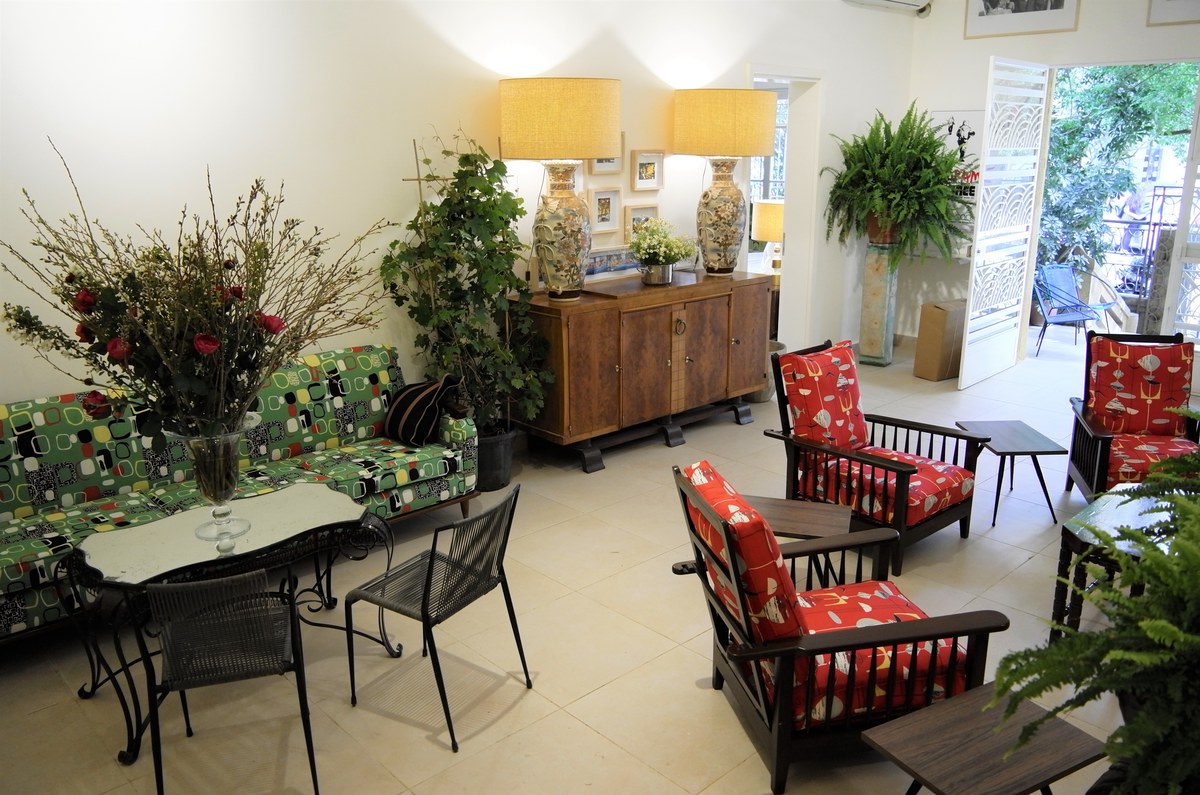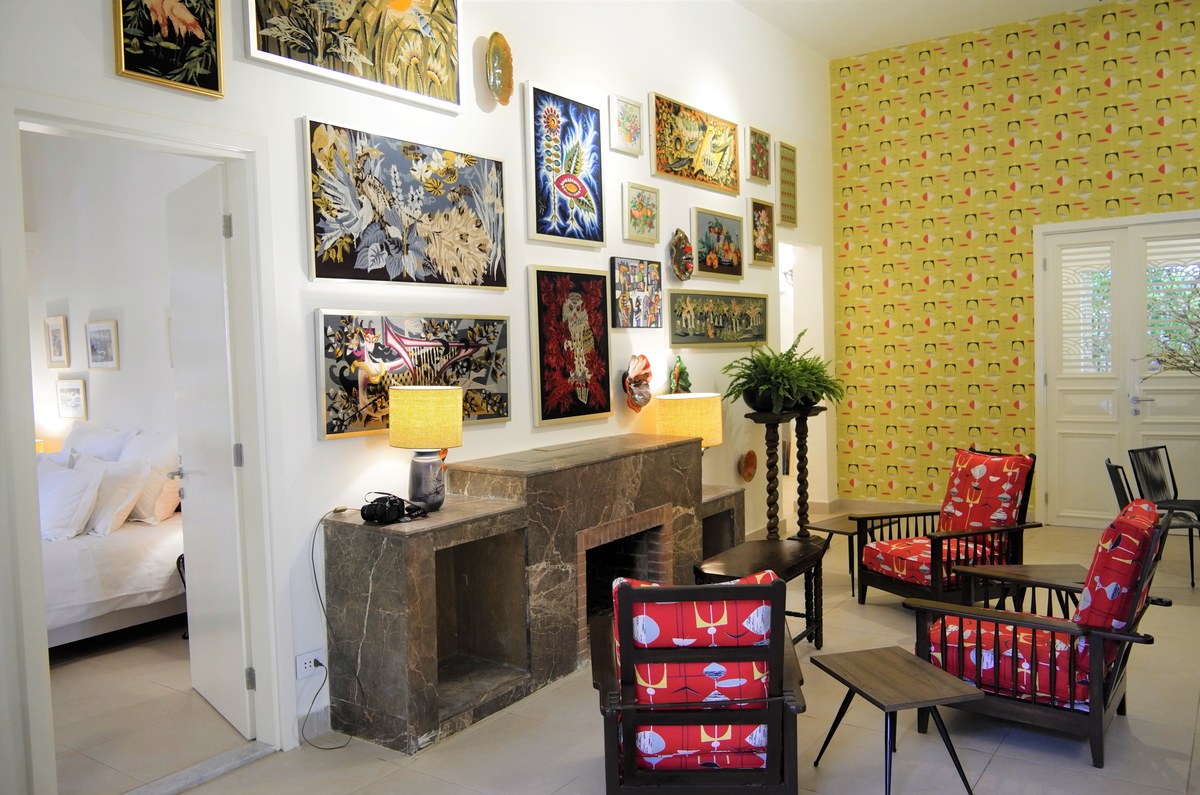BEIRUT: You get a sense that Kamal Mouzawak, one of Lebanon’s most fascinating social entrepreneurs, doesn’t like to stand still for too long. Since founding Souk El Tayeb in 2004, he has built a small but precise hospitality empire, one that has sought to transform people’s lives through food.
Originally a farmers’ market, Souk El Tayeb has grown to encompass a network of restaurants (called Tawlets) and guesthouses (Beits), and works to promote and preserve the culinary traditions, rural heritage and natural environment of Lebanon. It’s a mission that has proved extremely popular, particularly the Tawlet element, with its constantly changing menus and rotation of chefs.
In comparison to the other elements of the organization, Souk El Tayeb’s guesthouses are relatively new. The first — Beit Douma, a traditional 19th-century Lebanese house high up in the mountains of Batroun District — took three months to renovate and was opened in 2015. Beit Ammiq and Beit El Qamar followed the same year, but it was at Beit Douma that Mouzawak first combined architectural preservation with culinary tradition.

From its eclectic artwork and vintage furniture, to its original fabrics and confidently colorful wallpapers, it is a triumph of interior design. (Supplied)
Now Beit El Hamra, the latest addition to Souk El Tayeb’s collection of guesthouses, has opened in Beirut’s most cosmopolitan neighborhood. Located on the ground floor of a 1950s yellow villa, it has added a distinctive dose of style not only to Baalbeck Street but to Hamra as a whole.
Much like Beit Douma, Beit El Hamra is exceptionally well curated. It has an attention to detail that is hard to find anywhere else in Lebanon, let alone in Beirut. From its eclectic artwork and vintage furniture, to its original fabrics and confidently colorful wallpapers, it is a triumph of interior design. There is not a single desultory object to be found and its two en-suite rooms have been adorned with carefully chosen ornaments. “It’s the small details that make a difference. It enhances the experience,” Mouzawak once told me.

Beit El Hamra is the latest addition to Souk El Tayeb’s collection of guesthouses. (Supplied)
Who would have thought that a color spectrum driven largely by dynamic yellows, reds and greens would be so homely? Who would have thought that two guest rooms lying in such close proximity to Tawlet El Hamra, the newest of Souk El Tayeb’s restaurants, would work? Yet they do. And they do so largely because, much like the organization’s other guesthouses, Beit El Hamra has been designed as a home away from home, not simply as a place to eat and sleep. That’s why fresh flowers and plants are dotted throughout, why a fireplace keeps you warm in the colder months, and why a courtyard garden provides a sense of serenity in an otherwise lively neighborhood.
There is also an enduring sense of space. The ceilings are high, the rooms large, the terraces long, and the garden expansive. There is a sense of grandeur, too, although the hustle and bustle of Hamra does occasionally creep in.

Beit El Hamra opened in Beirut’s most cosmopolitan neighborhood. (Supplied)
At the heart of it all, of course, is food. It’s almost impossible to separate Beit El Hamra from Tawlet El Hamra. They are, in essence, one and the same thing. Which is understandable considering Lebanese cuisine is central to everything Mouzawak and Souk El Tayeb have ever done. There is something wonderful about the original Tawlet in Mar Mikhael, which all but shuns the staples of popular Lebanese cuisine, favoring instead the food of the home. Its dishes are regional, seasonal, simple. There are stews and salads, pastries and desserts, all served as part of an all-encompassing daily buffet.
At Tawlet El Hamra, it’s different — although the commitment to taste and quality remains. There is no buffet, just an à-la-carte menu offering some of the finest food in Beirut. That means everything from eggs cooked in clay pots to batata harra, kibbeh batata, and oven-baked chicken with potatoes. Everything, as expected, tastes wonderful.
You get a sense that life is just as it should be at Beit El Hamra, and a large part of that is thanks to the staff. Friendly and attentive, yet quiet and unobtrusive, they are universally exceptional. It’s to them that Souk El Tayeb should doff its hat.





















